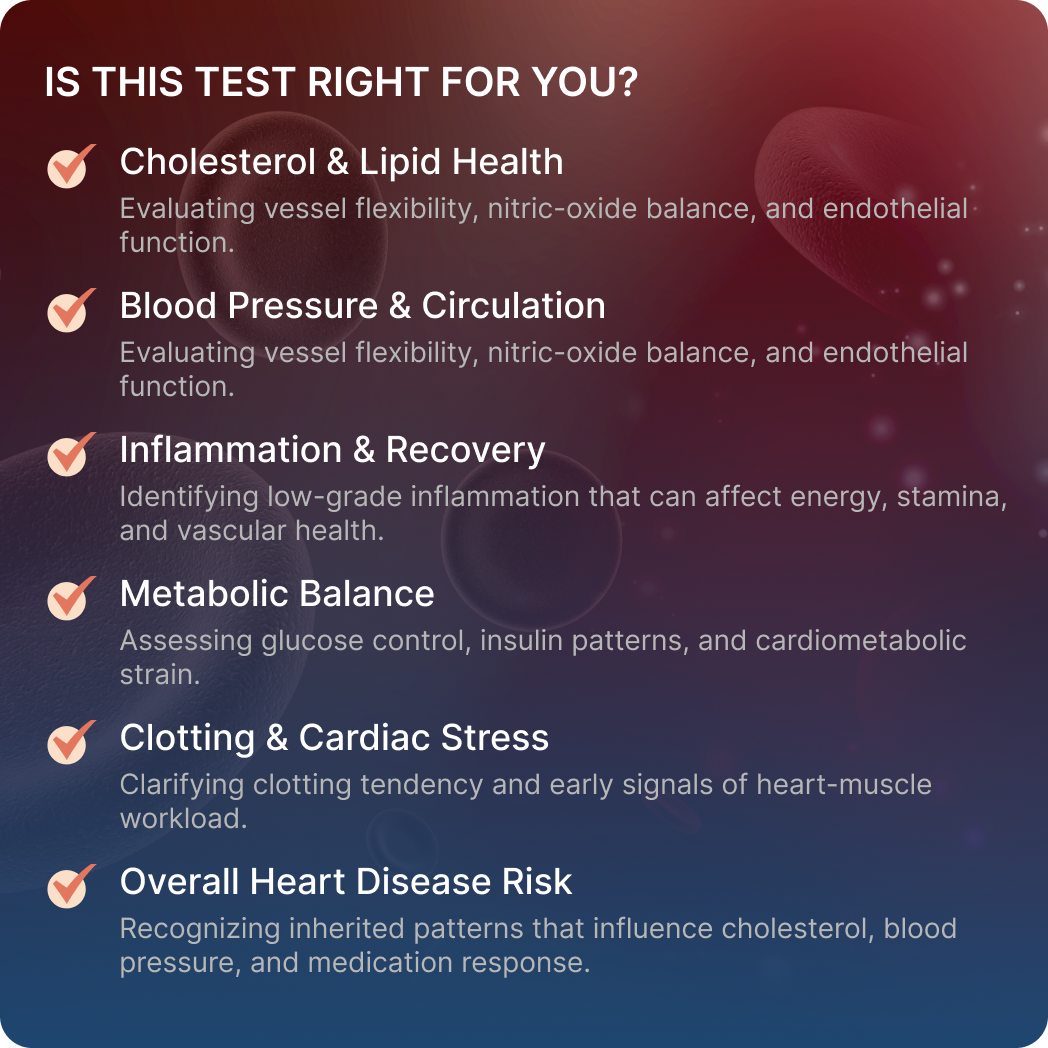Cardio Zoomer is an advanced blood and urine cardiovascular assessment that brings together high-resolution biomarkers and genetics to give a clear view of heart and vascular risk. It organizes lipids, inflammation, oxidative stress, metabolism, endothelial function, clotting markers, and inherited risk factors into one cohesive profile your provider can act on. This provides grounded, personalized guidance to strengthen heart health and support a longer healthspan and beyond.
Blood sugar swings, insulin resistance, and organ stress can affect energy, circulation, and long-term heart health even before symptoms appear.
Precision Testing
Measure glucose control, insulin response, kidney function, and liver markers tied to metabolic load.
Personalized Solutions
Balanced meals, steady-blood-sugar habits, regular movement, and restorative routines to ease metabolic strain.















.png?width=835&height=831&name=Screenshot%202025-09-05%20at%2016.11.51%201%20(1).png)
.png?width=835&height=828&name=Screenshot%202025-09-05%20at%2016.11.51%201%20(2).png)
.png?width=834&height=828&name=Screenshot%202025-09-05%20at%2016.11.51%201%20(3).png)
.png?width=835&height=828&name=Screenshot%202025-09-05%20at%2016.11.51%201%20(4).png)


.png?width=457&height=457&name=Step%20Images%20(1).png)


.png?width=900&height=735&name=image%20859%20(1).png)








